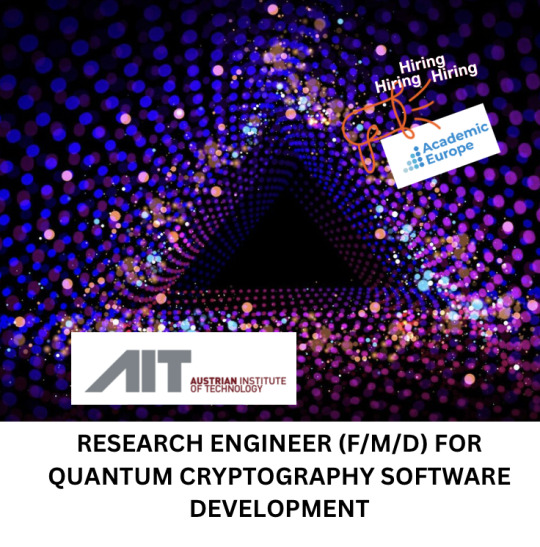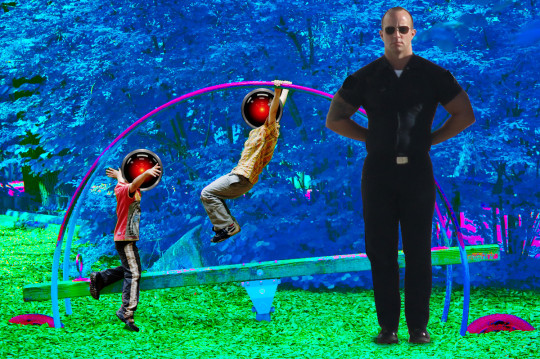#quantum computing in software
Explore tagged Tumblr posts
Text
Exploring the Latest Trends in Software Development
Introduction The software is something like an industry whose development is ever-evolving with new technologies and changing market needs as the drivers. To this end, developers must keep abreast with current trends in their fields of operation to remain competitive and relevant. Read to continue .....
#analysis#science updates#tech news#technology#trends#adobe cloud#business tech#nvidia drive#science#tech trends#Software Solutions#Tags5G technology impact on software#Agile methodologies in software#AI in software development#AR and VR in development#blockchain technology in software#cloud-native development benefits#cybersecurity trends 2024#DevOps and CI/CD tools#emerging technologies in software development#future of software development#IoT and edge computing applications#latest software development trends#low-code development platforms#machine learning for developers#no-code development tools#popular programming languages#quantum computing in software#software development best practices#software development tools
0 notes
Text

In some respects, one can think of a quantum computer today as being analogous to an analog computer from years ago. The cooling is key to reduce energy and thus vibration in the system. If a quantum computer is run for too long the processor heats up and the noise in the results increases. So sensitive is the computer to heat or vibration that at the $150 million Nanoscience Hub at Sydney University, scientists have to use stairs rather than the lifts because the quantum computer would feel the vibration of the lifts in the building and produce meaningless results. Thus in Devs, the quantum computer main lab space is depicted as a suspended hovering isolated block, inside a bunker style building. This art directed visual feature, like so many in Devs, had one foot in reality and another in fiction.
#devs#devs 2020#alex garland#quantum physics#quantum computing#quantum mechanics#science fiction#Sonoya Mizuno#Nick Offerman#Jin Ha#Zach Grenier#Cailee Spaeny#Stephen McKinley Henderson#Karl Glusman#Alison Pill#software engineering#free will#determinism#quantum computer#dneg#amaya#tech company#faraday cage#many worlds#De Broglie–Bohm theory#science#physics#Socratic method#philosophy#special effects
6 notes
·
View notes
Text
this is "stuff on an overloaded optical table erasure" damn it
sometimes your quantum computer's a messy bitch and that's okay

(source: https://arstechnica.com/science/2023/12/quantum-computer-performs-error-resistant-operations-with-logical-qubits/)

(source: https://www.quantumlab.it/quantum-computing-lab/)

(source: https://www.quantumlah.org/about/highlight/2020-05-ions-hybrid-quantum-computing)
why did no one tell me quantum computers looked like that
#the benefit of doing otherwise normal software stuff for a quantum computing company#is knowing about the “messy bitch” type of quantum computers#also joking about how the ions might fall out of the ion trap and then you have to look for them on the floor
151K notes
·
View notes
Text
How Big Data is Revolutionizing Algorithmic Trading | Bigul

Big data, AI, and real time processing are transforming algorithmic trading. Explore its future with quantum computing and blockchain for smarter decisions.
Read more..
#Big data#Artificial Intelligence#Algorithmic Trading#quantum computing#blockchain#Machine Learning#AI & Machine Learning#AI Machine Learning#algo trading#algo trading app#bigul#algo trading platform#algo trading india#algo trading strategies#bigul algo#free algo trading software#algorithm software for trading#finance#investment#investment platform#investments#investors#investment platform in india#algorithmic trading software free#algos#algorithm#best algo trading software#best algo trading software in india#best share trading app in india#best share trading app
0 notes
Text
Microsoft is making rapid progress in development of Quantum hardware,software, and algorithms.
0 notes
Text
That thing is actually a quantum fridge. Mind you if it was a functioning quantum computer you might be able to post memes that were entangled with elections
That picture of Biden looking at a quantum computer and being unable to grasp the true form of what he's seeing

To be fair that's how I would I react too
#had a job that involved being shown a lot of quantum fridges.#made these jokes a lot.#made this face a lot.#had to hear a lot of people tell me sincerely that the future of quantum computing is not in making a quantum computer#which we dont exactly have yet#but in quantum software which you would run on the computer you don’t have#and post-quantum cryptography and so on#which is all excessively nice and interesting but the discussions themselves are so inherently quantum#that you’re like. ok. can we have a classical conversation now#the future IS the future I agree.#👆
44K notes
·
View notes
Text
Job - Alert 📚

🚀🔒 Join Us at AIT Austrian Institute of Technology as a Research Engineer (f/m/d) for Quantum Cryptography Software Development!
As Austria's leading research and technology organization, we're tackling challenges like climate change and digitalization. At the Center for Digital Safety & Security, you'll develop innovative technologies that enhance digital security.
Ready to make your mark in quantum cryptography?
👉🏼 https://www.academiceurope.com/job/?id=6760
Apply now and be part of our innovative journey!
#hiring#jobs#science#jobseekers#quantum cryptography#computer science#cybersecurity#software engineering
0 notes
Text
Quantum computing offers a compelling promise: the ability to solve problems once deemed unsolvable at once inconceivable speeds. So, we’ll dive into the foundational concepts of quantum computing and explore the vast potential such systems offer across different fields.
#quantum computing#outsourcing#software development#custom software development#it staff augmentation#staff augmentation#custom software solutions#web development#custom software#it staffing company#it staff offshoring
0 notes
Text
Software for the Future: Exploring Quantum Computing and its Potential Applications

Quantum computing, an exciting frontier in the world of technology, is poised to revolutionize the way we process and analyze information. Unlike classical computers, which use bits as the fundamental unit of data, quantum computers harness qubits, operating under the unique principles of quantum mechanics. This accelerated computation offers numerous applications, particularly when combined with artificial intelligence (AI) and machine learning (ML). Let's take a look at the promising applications of quantum computing in diverse domains.
1. Financial Modeling:
Quantum computing holds promise for financial organizations by enhancing modeling capabilities, facilitating a deeper understanding of investment and securities behavior at scale. This can lead to reduced risk and optimized portfolios, shedding light on global financial trends.
2. Cybersecurity:
In the ever-evolving landscape of cybersecurity, quantum computing offers a potential solution by ensuring data remains encrypted during use, bolstering privacy and encryption measures both in transit and at rest.
3. Route and Traffic Optimization:
Optimal route planning is vital for seamless supply chain logistics and transportation. Quantum computing's ability to process real-time data like weather patterns and traffic flow can revolutionize this sector, enabling fleet-wide route adjustments for efficiency.
4. Manufacturing:
Quantum computers enhance prototyping and testing in manufacturing, yielding cost-effective and well-designed products that require minimal testing. This technological advancement has the potential to reshape manufacturing processes, making them more efficient and cost-effective.
5. Drug and Chemical Research:
By generating precise models of atomic interactions, quantum computing offers invaluable insights into molecular structures. This is poised to revolutionize drug and chemical research, impacting the development of new products and medicines through enhanced predictive modeling.
6. Batteries:
Quantum computing aids in understanding how to incorporate new materials into products like batteries and semiconductors. This comprehension leads to optimized batteries for longevity and efficiency, shaping the future of energy storage and electric vehicles.
Quantum computing emerges as a powerful tool with vast potential, revolutionizing a myriad of sectors including finance, cybersecurity, logistics, manufacturing, pharmaceuticals, and energy. Its ability to process complex data and optimize solutions at an unparalleled speed sets the stage for a future where quantum computing drives innovation and transforms the way we approach challenges across industries. The journey into this quantum era holds immense promise and excitement for a technologically advanced future.
#technology#quantum computing#software#tech#accretive technology group#atg#business#data#Machine Learning
0 notes
Text

The art direction of the exterior of the inner cube in Devs is based on a Menger Sponge, a complex three-dimensional fractal that illustrates infinite recursive patterns (a mathematical object). “The story of that really goes back to Annihilation (2018) and obviously there’s a lot of fractal imagery in that film, especially Mandelbrot,” Whitehurst comments referring to Director Alex Garland’s previous film.
“That film was still in the back of everybody’s mind… I cannot recall whether the actual screenplay describes the cube as being a Menger Sponge or not? But certainly, I don’t think there was ever any discussion of it being anything else.” The horizontal midsection was built on a set in Manchester and DNEG extended it up and down digitally. On the set, there was also a large trolly that could be pulled back and forth to provide the basis of the capsule that floats across the gap. “Everything above and below that was a very elaborate set extension. Because the lighting is changing the whole time, it was incredibly complicated to do,” explains Whitehurst. The only exception is the major capsule drop in the finale. “That crash is all CG because it had to be,” he explains. “Even for the fully CG shots, wherever we could, we’d get Rob (Hardy : DOP) to operate some sort of camera move to give us something to work with. In those rare cases where we couldn’t do that,” says Whitehurst. “I’ve known Rob long enough that I think I can do a recently good Rob Hardy impersonation of moving a CG camera around!” Hardy and Whitehurst, have both worked many times with Director Garland.
#devs#alex garland#quantum physics#quantum computing#quantum mechanics#devs 2020#science fiction#Sonoya Mizuno#Nick Offerman#Jin Ha#Zach Grenier#Cailee Spaeny#Stephen McKinley Henderson#Karl Glusman#Alison Pill#software engineering#free will#determinism#quantum computer#dneg#amaya#tech company#many worlds#De Broglie–Bohm theory#science#physics#special effects#practical effects#menger sponge#fractal
5 notes
·
View notes
Text
The Future of IT Jobs: Skills and Roles in Demand
The future of IT jobs is continually evolving, driven by technological advancements and changing business needs. Here are some skills and roles that are expected to be in demand in the IT industry:
Data Science and Analytics:
With the increasing importance of data-driven decision-making, professionals skilled in data analysis, machine learning, and data visualization will be highly sought after.
Artificial Intelligence and Machine Learning:
As AI becomes more prevalent in various industries, the demand for experts in machine learning algorithms, natural language processing, and AI strategy will continue to grow.
Cybersecurity:
As cyber threats become more sophisticated, organizations will need skilled professionals in cybersecurity to protect their systems, networks, and data from attacks.
Cloud Computing:
The adoption of cloud technology is on the rise, leading to a demand for professionals with expertise in cloud architecture, migration, and management.
Full Stack Development:
Full stack developers who can work on both the front-end and back-end of applications will be in high demand due to their ability to develop end-to-end solutions.
DevOps and Automation:
Organizations are increasingly embracing DevOps practices to enhance collaboration and efficiency. Professionals with skills in continuous integration/continuous delivery (CI/CD) pipelines and automation tools will be in demand.
Internet of Things (IoT):
The proliferation of connected devices opens up opportunities for professionals who can design, develop, and manage IoT systems and platforms.
Creating intuitive and engaging user experiences is crucial for businesses. UX designers who can optimize the usability and accessibility of digital products will be in demand.
Project Management:
IT project managers who can lead teams, manage budgets, and ensure successful project delivery will remain essential in the industry.
Data Privacy and Compliance:
With the increasing focus on data privacy regulations, professionals knowledgeable in data protection, privacy laws, and compliance frameworks will be highly sought after.
Business Analysis:
IT professionals who can bridge the gap between technology and business needs by analyzing requirements, identifying solutions, and managing stakeholders will be in demand.
Blockchain:
Professionals with expertise in blockchain technology, smart contracts, and decentralized applications will find opportunities in industries such as finance, supply chain, and healthcare.
Robotic Process Automation (RPA):
As businesses look to automate repetitive tasks, professionals skilled in RPA tools and process optimization will be valuable assets.
Quantum Computing:
While still in its early stages, the field of quantum computing is gaining traction. Professionals with knowledge of quantum algorithms and programming languages will be in demand as this technology advances.
Data Engineering:
With the growing volume of data, organizations need data engineers who can design, build, and maintain robust data infrastructure and pipelines.
It's important to note that the IT industry is dynamic, and new roles and skills will continue to emerge as technology advances. Continuous learning and staying updated with the latest trends and technologies will be crucial for IT professionals to thrive in the future job market.
#elicitdigital#developers#webdevelopment#webdesign#facebook#elicit#developer#quantum computing#Data Engineering#Robotic Process Automation#Blockchain#digitalmarketingtips#Business Analysis#Project Management#uidesign#uxuidesign#Cloud Computing#software#automation#cloud services#information technology#innovation
1 note
·
View note
Text
AI and ChatGPT: The Groundbreaking News of 2023
By Christopher Saleh May 20, 2023 Introduction: In the realm of technological advancements, 2023 has brought forth a revolutionary breakthrough in the form of Artificial Intelligence (AI) and the impressive ChatGPT, an advanced language model. This dynamic duo has taken the world by storm, capturing headlines and igniting discussions across industries. Their impact has been far-reaching,…

View On WordPress
#opencloud#AI#automation#change#ChatGPT#cloud#education#IT#privacy#psychology#quantum computing#robotics#security#software testing#technology#testing
0 notes
Text
Humans are not perfectly vigilant

I'm on tour with my new, nationally bestselling novel The Bezzle! Catch me in BOSTON with Randall "XKCD" Munroe (Apr 11), then PROVIDENCE (Apr 12), and beyond!

Here's a fun AI story: a security researcher noticed that large companies' AI-authored source-code repeatedly referenced a nonexistent library (an AI "hallucination"), so he created a (defanged) malicious library with that name and uploaded it, and thousands of developers automatically downloaded and incorporated it as they compiled the code:
https://www.theregister.com/2024/03/28/ai_bots_hallucinate_software_packages/
These "hallucinations" are a stubbornly persistent feature of large language models, because these models only give the illusion of understanding; in reality, they are just sophisticated forms of autocomplete, drawing on huge databases to make shrewd (but reliably fallible) guesses about which word comes next:
https://dl.acm.org/doi/10.1145/3442188.3445922
Guessing the next word without understanding the meaning of the resulting sentence makes unsupervised LLMs unsuitable for high-stakes tasks. The whole AI bubble is based on convincing investors that one or more of the following is true:
There are low-stakes, high-value tasks that will recoup the massive costs of AI training and operation;
There are high-stakes, high-value tasks that can be made cheaper by adding an AI to a human operator;
Adding more training data to an AI will make it stop hallucinating, so that it can take over high-stakes, high-value tasks without a "human in the loop."
These are dubious propositions. There's a universe of low-stakes, low-value tasks – political disinformation, spam, fraud, academic cheating, nonconsensual porn, dialog for video-game NPCs – but none of them seem likely to generate enough revenue for AI companies to justify the billions spent on models, nor the trillions in valuation attributed to AI companies:
https://locusmag.com/2023/12/commentary-cory-doctorow-what-kind-of-bubble-is-ai/
The proposition that increasing training data will decrease hallucinations is hotly contested among AI practitioners. I confess that I don't know enough about AI to evaluate opposing sides' claims, but even if you stipulate that adding lots of human-generated training data will make the software a better guesser, there's a serious problem. All those low-value, low-stakes applications are flooding the internet with botshit. After all, the one thing AI is unarguably very good at is producing bullshit at scale. As the web becomes an anaerobic lagoon for botshit, the quantum of human-generated "content" in any internet core sample is dwindling to homeopathic levels:
https://pluralistic.net/2024/03/14/inhuman-centipede/#enshittibottification
This means that adding another order of magnitude more training data to AI won't just add massive computational expense – the data will be many orders of magnitude more expensive to acquire, even without factoring in the additional liability arising from new legal theories about scraping:
https://pluralistic.net/2023/09/17/how-to-think-about-scraping/
That leaves us with "humans in the loop" – the idea that an AI's business model is selling software to businesses that will pair it with human operators who will closely scrutinize the code's guesses. There's a version of this that sounds plausible – the one in which the human operator is in charge, and the AI acts as an eternally vigilant "sanity check" on the human's activities.
For example, my car has a system that notices when I activate my blinker while there's another car in my blind-spot. I'm pretty consistent about checking my blind spot, but I'm also a fallible human and there've been a couple times where the alert saved me from making a potentially dangerous maneuver. As disciplined as I am, I'm also sometimes forgetful about turning off lights, or waking up in time for work, or remembering someone's phone number (or birthday). I like having an automated system that does the robotically perfect trick of never forgetting something important.
There's a name for this in automation circles: a "centaur." I'm the human head, and I've fused with a powerful robot body that supports me, doing things that humans are innately bad at.
That's the good kind of automation, and we all benefit from it. But it only takes a small twist to turn this good automation into a nightmare. I'm speaking here of the reverse-centaur: automation in which the computer is in charge, bossing a human around so it can get its job done. Think of Amazon warehouse workers, who wear haptic bracelets and are continuously observed by AI cameras as autonomous shelves shuttle in front of them and demand that they pick and pack items at a pace that destroys their bodies and drives them mad:
https://pluralistic.net/2022/04/17/revenge-of-the-chickenized-reverse-centaurs/
Automation centaurs are great: they relieve humans of drudgework and let them focus on the creative and satisfying parts of their jobs. That's how AI-assisted coding is pitched: rather than looking up tricky syntax and other tedious programming tasks, an AI "co-pilot" is billed as freeing up its human "pilot" to focus on the creative puzzle-solving that makes coding so satisfying.
But an hallucinating AI is a terrible co-pilot. It's just good enough to get the job done much of the time, but it also sneakily inserts booby-traps that are statistically guaranteed to look as plausible as the good code (that's what a next-word-guessing program does: guesses the statistically most likely word).
This turns AI-"assisted" coders into reverse centaurs. The AI can churn out code at superhuman speed, and you, the human in the loop, must maintain perfect vigilance and attention as you review that code, spotting the cleverly disguised hooks for malicious code that the AI can't be prevented from inserting into its code. As "Lena" writes, "code review [is] difficult relative to writing new code":
https://twitter.com/qntm/status/1773779967521780169
Why is that? "Passively reading someone else's code just doesn't engage my brain in the same way. It's harder to do properly":
https://twitter.com/qntm/status/1773780355708764665
There's a name for this phenomenon: "automation blindness." Humans are just not equipped for eternal vigilance. We get good at spotting patterns that occur frequently – so good that we miss the anomalies. That's why TSA agents are so good at spotting harmless shampoo bottles on X-rays, even as they miss nearly every gun and bomb that a red team smuggles through their checkpoints:
https://pluralistic.net/2023/08/23/automation-blindness/#humans-in-the-loop
"Lena"'s thread points out that this is as true for AI-assisted driving as it is for AI-assisted coding: "self-driving cars replace the experience of driving with the experience of being a driving instructor":
https://twitter.com/qntm/status/1773841546753831283
In other words, they turn you into a reverse-centaur. Whereas my blind-spot double-checking robot allows me to make maneuvers at human speed and points out the things I've missed, a "supervised" self-driving car makes maneuvers at a computer's frantic pace, and demands that its human supervisor tirelessly and perfectly assesses each of those maneuvers. No wonder Cruise's murderous "self-driving" taxis replaced each low-waged driver with 1.5 high-waged technical robot supervisors:
https://pluralistic.net/2024/01/11/robots-stole-my-jerb/#computer-says-no
AI radiology programs are said to be able to spot cancerous masses that human radiologists miss. A centaur-based AI-assisted radiology program would keep the same number of radiologists in the field, but they would get less done: every time they assessed an X-ray, the AI would give them a second opinion. If the human and the AI disagreed, the human would go back and re-assess the X-ray. We'd get better radiology, at a higher price (the price of the AI software, plus the additional hours the radiologist would work).
But back to making the AI bubble pay off: for AI to pay off, the human in the loop has to reduce the costs of the business buying an AI. No one who invests in an AI company believes that their returns will come from business customers to agree to increase their costs. The AI can't do your job, but the AI salesman can convince your boss to fire you and replace you with an AI anyway – that pitch is the most successful form of AI disinformation in the world.
An AI that "hallucinates" bad advice to fliers can't replace human customer service reps, but airlines are firing reps and replacing them with chatbots:
https://www.bbc.com/travel/article/20240222-air-canada-chatbot-misinformation-what-travellers-should-know
An AI that "hallucinates" bad legal advice to New Yorkers can't replace city services, but Mayor Adams still tells New Yorkers to get their legal advice from his chatbots:
https://arstechnica.com/ai/2024/03/nycs-government-chatbot-is-lying-about-city-laws-and-regulations/
The only reason bosses want to buy robots is to fire humans and lower their costs. That's why "AI art" is such a pisser. There are plenty of harmless ways to automate art production with software – everything from a "healing brush" in Photoshop to deepfake tools that let a video-editor alter the eye-lines of all the extras in a scene to shift the focus. A graphic novelist who models a room in The Sims and then moves the camera around to get traceable geometry for different angles is a centaur – they are genuinely offloading some finicky drudgework onto a robot that is perfectly attentive and vigilant.
But the pitch from "AI art" companies is "fire your graphic artists and replace them with botshit." They're pitching a world where the robots get to do all the creative stuff (badly) and humans have to work at robotic pace, with robotic vigilance, in order to catch the mistakes that the robots make at superhuman speed.
Reverse centaurism is brutal. That's not news: Charlie Chaplin documented the problems of reverse centaurs nearly 100 years ago:
https://en.wikipedia.org/wiki/Modern_Times_(film)
As ever, the problem with a gadget isn't what it does: it's who it does it for and who it does it to. There are plenty of benefits from being a centaur – lots of ways that automation can help workers. But the only path to AI profitability lies in reverse centaurs, automation that turns the human in the loop into the crumple-zone for a robot:
https://estsjournal.org/index.php/ests/article/view/260

If you'd like an essay-formatted version of this post to read or share, here's a link to it on pluralistic.net, my surveillance-free, ad-free, tracker-free blog:
https://pluralistic.net/2024/04/01/human-in-the-loop/#monkey-in-the-middle

Image: Cryteria (modified) https://commons.wikimedia.org/wiki/File:HAL9000.svg
CC BY 3.0 https://creativecommons.org/licenses/by/3.0/deed.en
--
Jorge Royan (modified) https://commons.wikimedia.org/wiki/File:Munich_-_Two_boys_playing_in_a_park_-_7328.jpg
CC BY-SA 3.0 https://creativecommons.org/licenses/by-sa/3.0/deed.en
--
Noah Wulf (modified) https://commons.m.wikimedia.org/wiki/File:Thunderbirds_at_Attention_Next_to_Thunderbird_1_-_Aviation_Nation_2019.jpg
CC BY-SA 4.0 https://creativecommons.org/licenses/by-sa/4.0/deed.en
#pluralistic#ai#supervised ai#humans in the loop#coding assistance#ai art#fully automated luxury communism#labor
379 notes
·
View notes
Text
College Major Headcanons:
[Extra content for The Homo Economicus in Love - noritoshi kamo x reader, cute college au]
Yuuji Itadori - Media Studies, on a full sports scholarship even though he's not too interested in sports. He doesn't show up to practice that much but carries the team in tournaments. Not really very academically inclined but everyone he meets loves him so much that he's gotten a shit ton of internships and work experience just cuz he's nice to work with. Stays on campus dorms.
Nobara Kugisaki - Fashion Merchandising (yay legally blonde). Another one who's not very academically inclined but does great at the practical aspects of the job. Gets 40% off on tuition, but has some funds from her grandma. also gets money from her fashion blog, part-time jobs at fashion mags, and manages clothing for photoshoots on a freelance basis (if she commits she commits). Saves on residence by renting with Inumaki and Panda.
Megumi Fushiguro - Computer Science with a minor in Math. Full scholarship and bursary grant by the college due to his shitty financial conditions (orphaned and destitute at a young age). Prof Gojo is his legal guardian. grew up in and stays on campus dorms.
Maki Zenin - Star Athlete, literally training for the Olympics. Her degree is in Mass Communications but she doesn't actually have to attend classes cuz the Uni wants her to focus on sports. Disowned by her family. Full sports scholarship and occasionally gets sponsored by sportswear companies. Trying to go pro.
Yuuta Okkotsu - Sociology and Anthropolgy. He enjoys talking to and meeting people and works as a part-time Journalist for local news channels to bring attention to issues like poverty. Gets a bursary grant from the uni, gets paid for and is decently recognized for his journalism work. Both Geto and Gojo want to mentor him. He talks to himself when he's alone but that's a secret.
Toge Inumaki - Architectural Design, chose this degree just for the hell of it, is a solid B+ student. Has a YouTube gaming and ASMR channel with 200k followers but is struggling to monetize it profitably. Got in on legacy admissions but gets a sports scholarship of 30% (he's pretty good at athletics)
Panda - ???
Noritoshi Kamo - Economics and Finance, specializing in Private Equity and Investment Banking. he's the heir of the Kamo Conglomerate. Full legacy admission even though he graduated valedictorian of high school and is the captain of the Archery team.
Todo Aoi - Quantum Physics. he's literally the top student of every class he takes. he keeps taking random other classes from different majors based on his whims. his genius was recognised and personally mentored by Yuki Tsukumo, but is now undergoing formal college education for the certificate even though he already knows all this and more. he spends half the day in the gym and the other half streaming Takada-chan variety clips.
Mai Zenin - Economics and Finance, her family made her take it. good at academics even though she's not super into it. legacy admission.
Momo Nishimiya - Literature and Creative Writing. She posts regularly for a gender and sexuality magazine. loves nobara's blog.
Miwa Kasumi - Computer Science with a minor in Software Engineering. She just wanted a degree that would lead to a well-paying job. Cabinet Member of the Student Council. She vouched a lot for Mechamaru/Kokichi to get disability-friendly accommodation. she struggles a bit with academics but pulls through with A- all around. Kokichi/Mechamaru helps her if she finds something particularly difficult to understand. has her own campus residence but has practically moved in with Kokichi.
Arata Nitta - Health and Medicine, focusing on Emergency Care Medicine. he TAs for Prof Shoko's classes. his sister works in college admin office. has campus residence but mostly stays in the college affilitated hospital, bit of an over-worker.
Mechamaru/ Kokichi Muta - double major in Computer Science and Mechanical Engineering. Another top student of his classes. Found it a bit difficult to adjust to campus life at first (not enough disability accommodation) but with Miwa's help he got around. campus dorm with Miwa.
Professors!
Gojo Satoru - graduated from top Ivy colleges, has 5 PhDs, and wrote 1000 papers and books, and is the one of the most respected physicist in the world but insists on teaching Intro-level Physics and Math. drives a Bugatti to college. highly competitive relative grading. prescribes his own books for his class. expect a problem set every day after class. gives a lot of individual attention to students tho, n is very nice in general. he'll accept a late submission if u bring him sweets. his lockscreen is prof geto?
Geto Suguru - teaches one class named Ethics, Philosophy and Law every semester. doesn't answer questions over email, only during Office Hours. great at explaining difficult concepts, his course is the one students fight to get into and say "opened their eyes". has a devoted cult of worshipping students, voted student favorite every year. his adopted daughters took a gap year to travel abroad and he talks about them in class. he always has sweets in his pockets?
Utahime Iori - teaches modules on Economics, Politics and Philosophy courses. great teacher, very clear explanations, bumps up the grading slightly (absolute grading) and is very accommodating as a prof. hates getting emails at night tho.
Shoko Ieiri - Shitty ass prof tbh but everyone takes her class cuz she gives everyone an A. teaches Surgical Anatomy. focuses on practical experience rather than theory. she has a no attendance policy and takes few very exams or assignments.
Yuki Tsukomo - Visiting Faculty, takes one super high level class Quantum Physical Theory one semester and comes back after 4 years. Independent researcher funded by the uni.
#jujutsu kaisen#jjk#jjk yuji#yuji itadori#jjk nobara#nobara kugisaki#jjk megumi#megumi fushiguro#jjk maki#maki zenin#yuta okkotsu#jjk yuta#inumaki toge#jjk inumaki#panda#jjk panda#jjk noritoshi#noritoshi kamo#jjk mai#mai zenin#jjk momo#jjk nitta#todo aoi#kasumi miwa#jjk miwa#mechamaru#gojo satoru#suguru geto#geto suguru#yuki tsukumo
86 notes
·
View notes
Text


internship pictures ! i'm in the computer software department for quantum computing ✧
the work is basically quantum mechanics from a computer science pov & i am Lost ! but the office is nice, and my supervisor is fun to work with, so i'm not too anxious !
#studyblr#studying#physicsblr#physics#stemblr#stem#computer science#dark academia#college#university#productivity#studyspo#studywithme#aesthetic#starot
58 notes
·
View notes